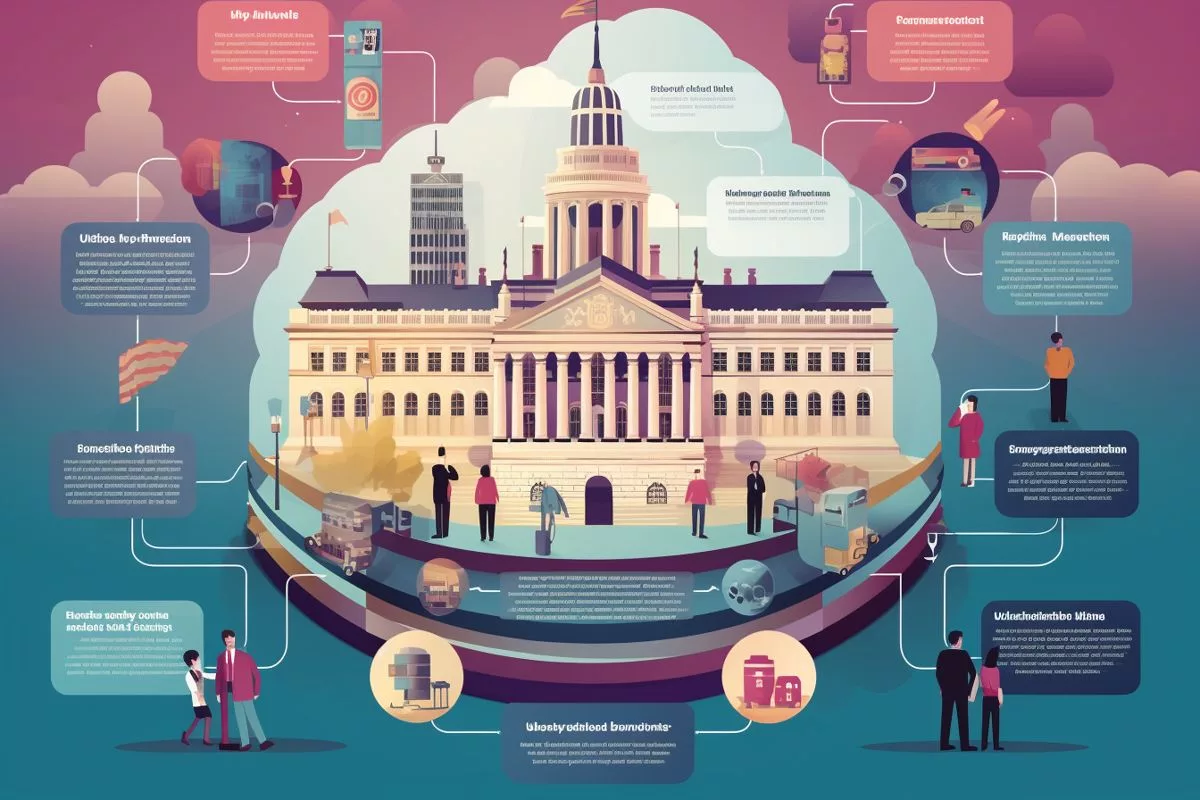South Africa’s National Tourism Safety Strategy is aimed at increasing visitor safety and changing the perception that South Africa is not a safe destination. The plan includes three pillars: preventative measures, reactive measures, and post-incident care programs, and initiatives under the plan include the Tourism Monitors Programme, the C-MORE Tracking device, victim support programs, and safety applications such as the SECURA Traveller App. The government is dedicated to upscaling security, creating job opportunities, and promoting inclusive tourism, with the formation of the National Tourism Safety Forum and partnerships with private and public agencies.
What is the National Tourism Safety Strategy in South Africa?
The National Tourism Safety Strategy in South Africa is a comprehensive plan to increase visitor safety and change the perception that South Africa is not a safe destination. It includes three pillars: preventative measures, reactive measures, and post-incident care programs. Initiatives under the plan include the Tourism Monitors Programme, the C-MORE Tracking device, a coding system for real-time data on crimes related to tourists, victim support programs, and safety applications such as the SECURA Traveller App. These efforts aim to enhance safety, create job opportunities, and promote inclusive tourism.
A Fresh Approach to Tourism Safety in South Africa
A transformative shift is underway in the tourism industry of South Africa, led by Patricia De Lille, the Minister of Tourism. The government, showing dedication and resolve, is working towards deploying strategic plans and forming alliances to upscale security, providing assurance to international tourists and industry stakeholders, which ultimately boosts the growth of the tourism sector.
A notable accomplishment is the formation of the [National Tourism Safety Forum](https://capetown.today/enhancing-south-africas-tourism-industry-with-safety-measures-and-initiatives/). The first meeting that took place on 29 May 2023 signifies a pivotal change in how South Africa tackles tourism safety. The forum is an assembly of various stakeholders, including government agencies, the South African Police Service (SAPS), the National Prosecuting Authority, Airports Company South Africa, the Tourism Business Council, along with representatives from the private sector. The main goal is to recognize security risks to tourism and collectively create practical solutions.
The National Tourism Safety Strategy: A Comprehensive Plan
The National Tourism Safety Strategy, a detailed plan crafted by the forum, has a goal to magnify visitor experiences and alter the perception that South Africa is not a safe destination. The strategy is categorized into three pillars: preventative measures, reactive measures, and post-incident care programs.
Preventative measures take an anticipatory approach, striving to reduce safety incidents before they happen. The execution of the Tourism Monitors Programme (TMP), a record of crimes against tourists, and the initiation of Victim Support Programmes (VSP) are part of this strategy. As an added measure, tourism safety awareness sessions have been integrated into the program to ensure the safety of both local and foreign tourists.
The second pillar, reactive measures, detail the steps to be taken when an incident happens. To ease this process, a committee headed by the Tourism Business Council of South Africa (TBCSA) has been established to create a Crisis Management Communications Plan and Protocols. The TBCSA is also responsible for devising a uniform messaging system that will be used during incidents.
The third pillar, post-incident care, focuses on the procedures to implement after an incident, with special focus on the Victim Support Programme. The Department of Tourism and the SAPS have signed a Memorandum of Understanding (MoU) to work together to prevent, investigate, and fight crimes that affect tourism and the well-being of tourists.
Innovative Safety Initiatives and Collaborations
Under the MoU, one initiative is the Tourism Monitors Programme (TMP), a government intervention worth R174 million that targets safety at tourist sites. The TMP assigns trained, mentored unemployed youth to these sites as Tourism Monitors, who take on a variety of roles, from patrolling and raising tourism awareness to reporting crimes and assisting tourists in need. This program aims not only to enhance safety but also to create job opportunities.
In an inventive addition to the TMP, the Department of Tourism has partnered with the Council for Scientific and Industrial Research to launch the C-MORE Tracking device, a platform utilizing modern web and mobile technology. This device is designed to enhance the safety of both the Tourism Monitors and tourists.
Additionally, the South African Police Services are working on a coding system to collect real-time data on crimes related to tourists. This data can assist in identifying trends and proactively introducing measures to address such incidents. A recent change in the Criminal Procedures Act permits those who have left the country following a crime to testify via audio-visual link, simplifying the process of prosecuting crimes against tourists.
Under the post-incident care measures, the Victim Support Programme provides assistance to tourists after traumatic events. The department has also developed a Standard Operating Procedures manual to guide provinces in setting up their own victim support programs.
Several safety applications have also been introduced. Tourist safety tips are now available through a QR code. The SECURA Traveller App, launched by the private sector in July 2023, is dedicated to ensuring tourist safety. The App connects to private security companies and emergency service providers, offering a range of services for a nominal monthly subscription fee. The Tourism Monitors will also have access to the App.
Furthermore, the Department of Tourism is investigating the potential use of drones to manage crime incidents involving tourists. They are also in talks with Google to revise the Google Maps app to prevent directing tourists into unsafe areas.
South Africa, with its rich cultural diversity and stunning landscapes, has always been a prime destination for tourists. With these novel initiatives and transparency, South Africa continues to welcome the world to explore its marvels, promising a memorable and safe journey. The diligent efforts of Minister Patricia De Lille and her team reflect South Africa’s government commitment to promoting inclusive tourism, securing safety and contributing to the nation’s economic growth.
1. What is the National Tourism Safety Strategy in South Africa?
The National Tourism Safety Strategy in South Africa is a comprehensive plan to increase visitor safety and change the perception that South Africa is not a safe destination. It includes three pillars: preventative measures, reactive measures, and post-incident care programs.
2. What are the initiatives under the National Tourism Safety Strategy?
Initiatives under the National Tourism Safety Strategy include the Tourism Monitors Programme, the C-MORE Tracking device, a coding system for real-time data on crimes related to tourists, victim support programs, and safety applications such as the SECURA Traveller App.
3. What is the National Tourism Safety Forum?
The National Tourism Safety Forum is an assembly of various stakeholders, including government agencies, the South African Police Service (SAPS), the National Prosecuting Authority, the Tourism Business Council, along with representatives from the private sector. It aims to recognize security risks to tourism and collectively create practical solutions.
4. What are the three pillars of the National Tourism Safety Strategy?
The three pillars of the National Tourism Safety Strategy are preventative measures, reactive measures, and post-incident care programs.
5. What innovative safety initiatives and collaborations are in place in South Africa?
Innovative safety initiatives and collaborations in South Africa include the Tourism Monitors Programme, the C-MORE Tracking device, a coding system for real-time data on crimes related to tourists, victim support programs, and safety applications such as the SECURA Traveller App.
6. What is the purpose of the Victim Support Programme?
The Victim Support Programme provides assistance to tourists after traumatic events and is part of the post-incident care measures. The department has also developed a Standard Operating Procedures manual to guide provinces in setting up their own victim support programs.








